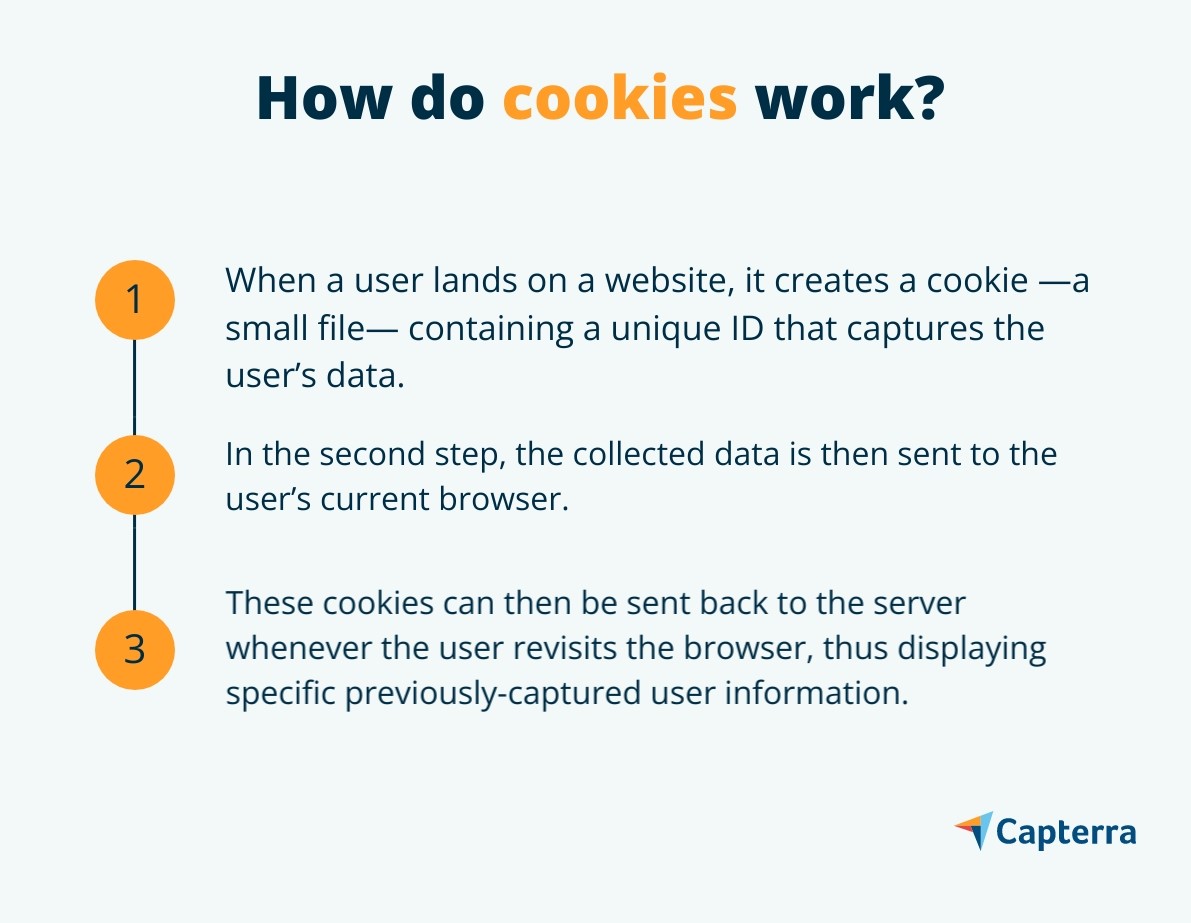This article will focus on the ‘why’ behind Google’s decision to remove third party cookies. We will also discuss how this change could impact marketers and advertisers.

In this article
The internet is vast, and so is the network of billions of people connected to it. It might be challenging to reach an individual with every piece of information on different topics. This is where ‘targeted advertising’ could play an important role. However, as many businesses might be using relevant ads to reach their customers, it might have increased the amount of individual customer data shared across the web, generally with the help of third party cookies. This could also give rise to data privacy concerns, and database management software can perhaps help users share their personal data more effectively and securely.
With that being said, in the year 2020, ‘ Chrome announced its intent to remove support for third-party cookies’. This could mean that advertisers and other companies might not be able to use third party cookies to track users on Chrome. This article will talk about Google’s privacy sandbox initiative, including Chrome’s plan to completely phase out third party cookies.
How do cookies work?
As per an article by Setupad, there are three ways in which internet cookies work. We discuss these steps involved in the process below:

What are third party cookies?
Third party cookies, also called trackers, are cookies placed by some other website on the specific domain that a user has visited. For instance, a visitor X landed on a shopping website A. Here on A, some news channel B has placed some cookies. These cookies placed by B are called third party cookies and might help B collect data about X’s online preferences. One of the problems with 3rd party cookies could be that the information they store and share might be difficult for users to manage. According to Gartner, ‘ these cookies are used to recognise an online visitor to send targeted ads based on their interests, sites they visit, and other online behaviour’.
As per Google, ‘ Chrome will block third party cookies over a three month period, starting in mid-2023 and ending in late 2023’. The article also mentions that, specifically for Chrome, the main objective is to have the critical technology established by 2022, so that organisations can eventually start adopting them for business use.
Why has Google decided to remove third party cookies?
According to Recode, unlike Google, other browsers like Apple Safari and Mozilla Firefox have already blocked third party cookies by default. The article further explains how Chrome relies on the data it collects from users online. Despite that, some people concerned about their data privacy might not want to be tracked at all by any browsers. Acknowledging that, Google Chrome has decided to execute the phasing out process. Some of the probable reasons behind the whole approach are mentioned below:
- To protect user privacy online and ensure that confidential data doesn’t fall into the hands of cyberbullies.
- To potentially keep the web open, accessible, and approachable for all users.
- To provide developers and businesses with modern tools to enhance their digital presence and capture their target audiences’ interest.
- To enable efficient collaboration with organisations to create new internet privacy standards.
What is database management software?
According to Capterra, database management software stores data in an organised manner, making the data accessible and recoverable for users. Such tools act as an interface and let users store, create, update, and remove data from the database. It can also help organisations to control who can access information from their website, thereby helping to ensure data security.
What is Google’s privacy sandbox initiative?
The privacy sandbox initiative led by Google plans to protect user privacy online by making technological advancements and providing organisations with appropriate tools required for business purposes. This initiative is focused on reducing user tracking —whether that’s across sites or applications. Google says that this initiative will phase-out third party cookies and put a limitation on hidden online monitoring.
It further mentions that Google will provide developers and businesses with more secure options for present technology. This might help organisations thrive digitally while also maintaining data privacy.
Tip: How can you reject cookies?
In case you don’t want Google Analytics’ cookies to track your online activity, you can opt out by downloading and installing a browser plug-in. This could help website users prevent their data from being tracked by Google Analytics.
How would marketers and advertisers be affected?
As Google announced the phasing out process, it has also shed some light on how this change might impact marketers and advertisers. Keeping that in mind, marketers and advertisers might no longer be able to use third party cookies to track users on Chrome. In addition to this, they might not be able to send targeted ads to Chrome users. When third party cookies are entirely phased out, advertisers might need to find modern and more reliable ways to retarget their audience safely.
That being said, we have mentioned some alternative approaches that marketers and advertisers can follow:
- Without Google’s third party cookies data, marketers and advertisers would still be able to send targeted ads to customers using Chrome’s first-party cookies and some other privacy sandbox tools.
- Google even mentions that their latest test of Federal Learning of Cohorts (FLoC) offers a new direction to businesses for reaching people. This approach involves creating a larger group of people with similar interests —rather than targeting an individual— and then targeting them collectively with valuable content.
- Marketers and advertisers could potentially look for appropriate database management tools that might help them manage data effectively and improve overall data security.
How can we follow a modern approach to data?
As per an article by Exchange Wire, ‘brands like Vodafone are trying to be less reliant on third-party cookies data’, indicating that there might occur a change of approach in terms of the business world. They can perhaps streamline their internal data to enhance engagement and potentially target only those users who have intentionally opted in.
The announcement of the removal of third party cookies and some other privacy laws might additionally indicate the growing importance of data privacy and how businesses should regard the rights of the users. However, one thing to remember is that while third party cookies might soon be gone, first party data collected by businesses remains a viable source of user information.
